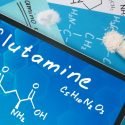29 Evidence-Based Health Benefits of Glutathione
Glutathione, one of the substances naturally produced by your liver, is also found in vegetables, fruits, and meats.
Often called “the mother of all antioxidants,” glutathione, also called GSH, is one of the most-discussed molecules in the health industry.
It is produced, and used by every cell, in your body.
If you are suffering from a medical condition or want to know how to receive glutathione’s benefits, the following information is for you.
What is Glutathione?
Glutathione is a simple molecule naturally produced in your body.
It is composed of three building blocks of amino acids, or proteins: cysteine, and glutamine.
The molecule also contains sulfur chemical groups, which act like flypaper because sulfur is a smelly, sticky molecule.
The stickiness allows bad compounds in your body to attach to it.
These include toxins, heavy metals, and free radicals.
In your liver, Glutathione works to remove chemicals considered foreign to your body.
These chemicals include pollutants and drugs.
Your body recycles glutathione. However, when you have a toxic overload or too many bad compounds in your body, glutathione is not recycled.
This means you are susceptible to developing various diseases and experiencing physical deterioration.
Glutathione levels in your body can become too low.
When they do, it is called glutathione deficiency, which increases the risk of oxidative stress.
Not having enough of the molecule can also increase the risk of your developing diseases like Parkinson’s, cancer, and Alzheimer’s disease.
Now that you know more about glutathione, it is important to discuss its benefits.
Glutathione Benefits You Need to Know
Maintaining an optimal level of glutathione in your body is vital to maintaining good health.
It plays an important role in breaking down nutrients, building up your defenses, and regulating your immune response.
The following are some of the numerous benefits of glutathione to help you understand how important it is:
Anti-Aging Superhero
Glutathione gets rid of the free radicals that can harm your body.
Free radicals are defined as highly reactive chemicals that can harm cells.
They are created when a molecule loses or gains an electron.
Eventually, they damage many cell components such as proteins, cell membranes, and DNA.
They can cause you to look older than you really are.
Another important fact is that menopause causes glutathione levels to decrease.
This can be a dramatic time in a woman’s life because the aging process begins to become obvious.
Glutathione is an anti-aging superhero.
With enough glutathione in your body, you can slow down the aging process.
This allows you to remain to look your best, youthful self for a long time because glutathione is fighting the aging process on your behalf.
Oxidative Stress Fighter
Oxidative stress happens when the free radicals, which damage cells, DNA, and cell membranes, overwhelm your body’s defenses.
This has a harmful effect.
When left unchecked, it may lead to developing myriad different diseases and accelerating the aging process.
Glutathione reduces the amount of oxidative stress and reactive oxygen species in your body.
The reduction of oxidative stress protects your DNA from being damaged.
It also protects you against cancer and a wide range of other diseases and medical conditions.
In addition to fighting oxidative stress, it also regenerates other antioxidants, such as vitamins E and C, to restore you to optimal health (1, 2).
Inflammation Reducer
Inflammation is the body’s response to an irritation or injury of the vascular tissue.
The area can become red or dark, and swollen and hot to the touch.
It may accompany an infection. Glutathione combats inflammation by acting as an anti-inflammatory.
It prevents the production of inflammatory cytokines.
Cytokines are made of several substances produced by cells within your immune system.
They transmit signals between your immune system’s cells.
They create immune cells that combat some type of health threat in your body.
This means the cytokines help trigger your immune system’s response.
In some situations, cytokines can accelerate production and create serious health problems.
Glutathione stops that overproduction.
When Glutathione is at a healthy level, it can protect you from a number of pulmonary medical conditions caused by too much inflammation.
Prevents Stress and Depression
Stress is how your body responds to any demand.
A stressor can be anything ranging from a major life change to work, to exercise or school work.
Depression is a serious mood disorder that changes the way you think, feel, and/or handles everyday tasks.
These everyday tasks include working, sleeping, raising children, and eating.
Without healthy levels of glutathione, your body is unable to stop the invasions of toxins, viruses, and bacteria.
These toxins, bacteria, and viruses cause serious illnesses such as mental disorders.
Also, low levels of glutathione in your brain cells lead to neural misfiring, which also causes many types of mental disorders.
When you have enough glutathione in your body, this may be able to prevent behavioral depression.
In addition, it can relieve stress (3, 4).
Natural Gut Healer
Irritable bowel syndrome, or IBS, is a common medical condition that affects your large intestine.
Symptoms of IBS include abdominal pain, cramping, gas, bloating, constipation, or diarrhea.
This condition can be eased with changes in your lifestyle such as stress relief and a diet.
If you have IBS, you may experience the decreased activity of enzymes that are involved in glutathione synthesis.
Glutathione synthesis occurs when the body produces and recycles its supply of glutathione.
If you have a decreased amount of the antioxidant in your body, this can disturb the production and recycling process.
The proper about glutathione is vital in renewing the gut wall.
It also protects the intestinal mucosa. When the abdominal wall is weakened, it can lead to a leaky gut.
Glutathione protects that wall to prevent it from becoming too weak.
Limits Nerve Cell Damage
Neurodegeneration refers to nerve cells that lose their structure and ability to function.
Over time, these cells become progressively damaged.
This deterioration slowly causes the loss of cognitive function, such as the ability to remember and make decisions.
Glutathione works to limit this damage to the nerve cells.
The cells in your brain consume about 20 percent of the oxygen used by your body.
However, it only makes up about 2 percent of your body’s weight.
In your body, reactive oxygen species are continuously forming during oxidative metabolism.
Reactive oxygen species are metabolic products created from two parts of cells: the mitochondria, and endoplasmic reticulum.
Together they destroy human cells and bacteria.
Glutathione detoxifies reactive oxygen species to limit the damage to nerve cells (5).
Nerve damage can occur in various medical conditions.
The following are some diseases that involve it:
Prevents Parkinson’s Disease
Oxidative stress in your nervous system is partly responsible for Parkinson’s Disease.
Parkinson’s disease is a progressive medical disorder that affects the part of the nervous system responsible for movement.
The medical condition develops slowly and sometimes begins with a slight tremor in one of your hands.
Parkinson’s disease commonly causes you to develop stiff and slow movements.
In addition, this medical condition involves the loss of dopaminergic neurons.
These neurons are located in the substantia nigra part of your brain.
An individual in the preclinical stage of Parkinson’s disease has low levels of glutathione in their substantia nigra.
Glutathione can prevent Parkinson’s disease when you have an increased level.
Improves Memory for Alzheimer’s Patients
Alzheimer’s disease is a progressive medical condition that destroys the brain’s function and memory.
The disease may be mildly noticeable, at first.
You may be confused or have difficulty remembering.
Over time, the disease causes you to forget important memories, people, and events.
Your personality undergoes a dramatic change (6).
As the disease progresses, brain cells die. Forgetfulness and mild confusion are the first symptoms.
Alzheimer’s disease is partly caused by oxidative stress.
It is also caused by an accumulation of TDP-43, which is DNA-binding protein in your nervous system.
Both have the ability to lower your glutathione levels.
Antioxidants such as vitamin E, a powerful one, can slow the progress of Alzheimer’s disease.
An increase in glutathione levels in your body has a positive impact on Alzheimer’s disease.
It can improve your memory.
Helps with Huntington’s Disease
Huntington’s disease, an inherited disease, causes the slow breakdown of nerve cells in your brain.
It impairs your cognitive functions, such as thinking and movement, and causes psychiatric disorders.
Signs and symptoms of the disease typically appear in your 30s and 40s but can develop earlier.
Symptoms of Huntington’s disease include impaired posture, muscle problems, involuntary jerking movements, and difficulty speaking.
The medical condition is caused by oxidative stress and mitochondrial dysfunction.
If consumed, a special form of curcumin can help improve your mitochondrial health.
This improvement in your mitochondrial health occurs by increasing your glutathione levels (7).
Treats Symptoms of Autism
Autism spectrum disorder (ASD), or autism, is named for a number of developmental disorders grouped together.
It includes a wide range of levels of disability, symptoms, and skills.
For instance, you may experience ongoing social problems that make it difficult to interact and communicate with other people.
Common symptoms associated with autism include lack of interest in people or things, and failure to show or feel empathy for other people.
Children diagnosed with autism have a lower level of glutathione than normal.
This decreased level of the antioxidant ranges from 20 to 40 percent lower.
Other abnormalities occur in the transsulfuration pathway.
This is the pathway where the glutathione is produced, and has a lower level of cysteine and limits the substrate for the production of glutathione.
An increase of glutathione may get rid of the built up toxic compounds and lead to neutralization.
This may help treat the symptoms of autism (8).
May Help Get Rid of Infections
An infection is an invasion of microorganisms, such as a virus, bacteria, or parasite, which are not normally found in your body.
The infection may not cause any symptoms.
The treatment varies, depending on the type of infection you have.
When you have a viral infection, an abnormal amount of oxidative stress in your cells is possible because of two factors.
The first factor is the amount of inflammation in your body.
The second factor is the low glutathione level in your body.
Other diseases such as cystic fibrosis, COPD, and influenza are severely affected by low glutathione levels.
For instance, low levels translate into decreased immunity.
This decreased immunity can lead to an increased risk of infection, which can worsen the medical condition and increase fatality.
If you have tuberculosis, you may also have a low amount of glutathione.
Also, a decreased amount of the antioxidant decreases the work of macrophages which are used to fight infections.
An increase in glutathione and cysteine levels are important to increase mycobacterial activity (9).
Helps with Respiratory Disease
A respiratory disease is a medical condition targeting the lung structures, including your airways.
This is not one disease, but a series of different diseases, and are characterized by an increase of inflammatory cells and/or destruction cycle of an infection.
Respiratory illnesses include chronic bronchitis, cystic fibrosis, obstructive pulmonary disease, and lung injury.
Low levels of glutathione increase inflammation in the lungs, according to a study.
This causes asthma, a respiratory disease, in your airways.
In the same study, results showed that increases in glutathione will decrease inflammation.
It also reduces asthma in your airways.
Chronic Obstructive Pulmonary Disease, or COPD, is a lung condition caused by oxidative damage to the lung tissue that happens over time.
Lung tissue inflammation causes symptoms such as coughing and shortness of breath.
By taking a glutathione supplement, you can decrease the tissue and oxidative damage inside your lungs.
This also reduces your risk of developing COPD (10, 11).
Fights Cancer
Cancer can develop anywhere in the body and occurs when cells grow out of control, crowding out normal cells.
This causes your body to work harder than it should.
Cancer is a general term to describe many types of the illness that develop.
For instance, cancer can develop in the blood, colon, or lungs.
Most cancers develop in a lump called a growth, or tumor.
Glutathione is a major factor in the life and death of cancer cells.
Any type of glutathione deficiency or decrease may lead to an increase in cell damage from oxidative stress.
This damage that occurs from oxidative stress assists in cancer’s progression.
An increase in glutathione decreases the risk of throat and oral cancers.
Another important fact about glutathione and cancer is that the antioxidant plays a huge role in repairing the cells damaged in your body by cancer drugs.
It is important to find the right balance of glutathione for your cancer fight.
Some chemotherapeutic drugs may elevate your glutathione levels, and protect the tumor in your body (12).
Helps with Sleep Apnea
Sleep apnea is a common medical disorder that causes your breathing to pause during your sleep.
If you do not stop breathing, you may take shallow breaths as you sleep.
The pause in your breathing can last from seconds to minutes and may occur at least 30 times within an hour.
Normal breathing resumes after you make a choking sound or loud snort.
Sleep apnea is a chronic condition where your sleep is constantly disturbed.
If you have sleep apnea, you may have a high level of oxidative stress.
At the same time, you have low levels of glutathione.
A study which focused on glutathione levels and sleep quality showed that an increase in glutathione levels increased the quality of sleep a person with sleep apnea can have (13).
Makes Your Baby Smarter
Pregnancy is the period of time in which a fetus develops inside your uterus or womb.
The pregnancy lasts about 40 weeks, or nine months, and is measured from the last menstrual period to labor and delivery.
If you are pregnant and have low levels of glutathione caused by depression, you may impair your fetus’ brain development.
Also, if your baby has high amounts of reactive oxygen species in their body, it may lead to preterm labor.
By having the proper glutathione levels, you may decrease the levels of reactive oxygen species.
You may be able to prevent preterm labor and develop a smarter baby (14).
Helps with Cystic Fibrosis
Cystic fibrosis, an inherited disease of your secretory glands, affects your liver, lungs, pancreas, sinuses, intestines, and sex organs.
The secretory glands make sweat and mucus.
Cystic fibrosis causes a buildup of mucus in your lungs, which blocks your airways.
It also causes you to lose more salt in your sweat.
Your intestines cannot fully absorb proteins and fats (15).
People with cystic fibrosis often have low levels of glutathione.
Cystic fibrosis also causes your body to release the oxidative reactants into your inflammatory cells.
With low levels of glutathione, your body must search for the released oxidative reactants.
If you have the proper amount of glutathione in your body, your lung capacity and function will generally increase.
Inhaled glutathione can also reduce the inflammation in your lungs caused by cystic fibrosis.
Treats Psychiatric Disorders
Mental or psychiatric, disorders are conditions and diseases affecting how you act, think, feel, or relate to people.
Symptoms range from mild to severe.
For instance, schizophrenia is a mental disorder that involves psychotic symptoms and/or cognitive dysfunction.
If you have schizophrenia, you have low glutathione levels. NAC helps increase them.
If you have NAC, the levels of glutathione will increase in your brain, which will improve the symptoms associated with schizophrenia.
Obsessive-Compulsive Disorder, or OCD, is a chronic disorder where you have uncontrollable and recurrent thoughts and behaviors that impel you to repeat an action.
If you have OCD, you may have low levels of glutathione in certain areas of your brain, such as the cingulate cortex.
In addition, there is an increase of free radicals found in your bloodstream.
Increasing glutathione will treat symptoms such as stress.
Glutathione can treat other symptoms related to mental disorders, such as bipolar, too (16).
Take Charge of ADHD Symptoms
Attention-deficit/hyperactivity disorder, or ADHD, is a brain disorder consisting of continuous hyperactivity-impulsiveness and/or inattention that interferes with development and function.
Symptoms of ADHD include not following through on instructions, talking nonstop, inability to stay seated, and overlooking missed details.
ADHD is first diagnosed in childhood, and it continues into adulthood.
There are three types of ADHD.
These include predominantly inattentive presentation, predominantly hyperactive-impulsive presentation, and combined presentation (a combination of the two types of ADHD).
Specific symptoms depend on the type of ADHD you have.
If you have ADHD, you may have low levels of glutathione.
A glutathione booster, called pycnogenol, assists in improving ADHD symptoms.
It tends to normalize the antioxidant levels and help you overcome the symptoms of ADHD (17).
Treats Complications of Diabetes
Type 2 diabetes occurs when blood sugar, also called blood glucose, is too high.
To keep blood sugar at a normal level, you may have to take insulin.
Both high blood sugar and type 2 diabetes reduce glutathione in your body.
It also makes you accumulate free radicals.
When your blood sugar remains too high over a long period of time, you may develop complications, which may include problems such as increased risk of heart disease, kidney damage, and skin problems.
Nerve damage is another complication of diabetes.
Taking an extra amount of glutathione can limit, or even prevent, diabetes complications (18).
Battles Liver Damage
Your liver is your body’s largest internal organ.
Located in the upper-right area of your abdominal cavity, it is the size of a football.
The job of your liver is to protect your tissues from damage by getting rid of the toxins in your bloodstream.
It can also repair damaged tissue.
Damage to your kidneys can occur because of drinking too much alcohol, a medical condition, or inherited disorder.
Scarring on your liver can impair its ability to function properly.
Liver damage symptoms include an extended abdomen, nausea, jaundice, and vomiting.
One cause of liver disease is oxidative stress.
Glutathione is great at keeping your liver healthy by reducing your body’s oxidative stress.
Taking a dose of reduced glutathione is great at combating the alcoholic fatty liver disease.
Preventing alcoholic fatty liver disease prevents the development of cirrhosis and liver cancer.
Prevents Kidney Disease
Your kidneys are organs that filter waste from your blood.
In addition to filtering waste products, the kidneys also regulate blood pressure, electrolyte balance, and red blood cell production in your body.
Kidney failure occurs when your kidneys no longer function properly, and waste products remain in your blood.
Symptoms of kidneys failure include shortness of breath and abnormal heart rhythms.
Kidney failure is caused by oxidative stress.
A study that involved about 20 patients undergoing hemodialysis because of long-term kidney failure found that improvement in kidney function occurred from taking supplemental glutathione (19).
Reduces Side Effects from Alcohol and Drug Use
Alcohol abuse involves becoming emotionally and physically dependent on consuming alcohol.
Drug abuse involves becoming physically and emotionally dependent on an illegal or legal substance.
Becoming emotionally and physically dependent means that you feel like you cannot live without the substance.
Consequences of alcohol and drug abuse include damage to internal organs (20).
Chronic alcohol use reduces glutathione levels in your liver and causes oxidative stress.
Consuming glutathione can reduce the side effects of chronic use of alcohol and drugs by decreasing the reactive oxygen species in your body.
Glutathione will improve liver function if you abstain from drug and alcohol use.
If you do consume alcohol, an increase in glutathione can reduce acetaldehyde, blood alcohol, and hepatic triglyceride levels.
Chronic alcohol consumption causes oxidative stress in your lungs.
This can lead to respiratory infections like pneumonia.
Glutathione protects your lungs by reducing your body’s oxidative stress.
Glutathione is Acne’s Enemy
Acne is a disorder affecting your hair follicles and oil glands in your skin.
The small holes in your skin, or pores, connect to the oil glands located under the skin that create sebum, an oily substance.
Sometimes the sebum, hair, and dead skin cells clump together to clog pores.
This can cause you to develop acne on your face or other areas of your body.
If you have acne, you have high levels of oxidative stress in your body.
You also have low levels of glutathione.
Any time there is a decrease in antioxidative activity, such as decreased glutathione, you may develop acne.
Increasing your glutathione levels will reduce your oxidative stress levels and your development of acne (21).
May Prevent Drug Addiction
Drug addiction is a chronic disease where you seek drugs regardless of the harmful consequences.
The consumption of drugs is difficult to control.
Repeated drug use can alter your brain, and this change can interfere with your ability to resist consuming them.
The term “drug addiction” refers to a variety of drugs.
These drugs include methamphetamines, cocaine, and alcohol.
The consumption of these drugs also alters your body.
For instance, drugs and alcohol lead to your body increasing reactive oxygen species, which can change proteins involved in your behavioral and neuronal pathways.
This causes you to become addicted to a particular drug or alcohol.
Glutathione decreases the development of behaviors that can cause you to become addicted.
It also reduces the reactive oxygen species in your body.
In addition to helping with drug addiction, it also helps if you are experiencing an eating disorder.
Cell Death is Controlled by Glutathione
Cells in the body die when they become old, damaged, or worn out.
This is necessary for the human body to work properly.
The cells are programmed to die after about four months.
The depletion of glutathione will cause the death of cellular pathways. For instance, S-glutathionylation is vital for protein modulation and the start of cell death.
Cells that lack needed glutathione can become damaged.
This damage can occur especially from arachidonic acid.
Arachidonic acid is an omega-6 unsaturated fatty acid your body needs to function properly.
Thus, glutathione levels must remain normal to avoid early cell death (22).
Get Lighter Skin with Glutathione
Healthy skin can become damaged due to overexposure to the sun, cosmetic products, and poor lifestyle choices.
The damage can come in the form of dark spots on your skin, and your skin can also become dull.
One way to lighten skin naturally is with glutathione.
Studies show that an increase of glutathione levels can increase the lightness in your skin when you are healthy.
This occurs because glutathione causes the production of different types of melanin (23).
Treats Glaucoma and Cataracts
Glaucoma is a medical condition that damages your optic nerve, causing the irreversible and progressive loss of vision.
It is the leading cause of blindness.
Cataracts occur when too much protein builds up in your eye’s lens.
This causes your lens to become cloudy.
Both cataracts and glaucoma can slowly cause vision loss in one or both of your eyes.
These medical conditions are caused by the oxidative stress that occurs in your ocular nerve.
Increased glutathione levels can decrease oxidative stress (24).
Glutathione Fights AIDS
AIDS, caused by the Human Immunodeficiency Virus, or HIV, attacks your immune system, weakening it and placing you at risk of developing different cancers and life-threatening infections.
Staying healthy when you have AIDS or HIV may help you live longer.
Glutathione can help you maintain good health.
A study that focused on older AIDS patients found that the levels of glutathione in their mitochondria was lower.
If you have AIDS, glutathione deficiencies decrease muscle strength and insulin sensitivity.
Increasing glutathione will treat these issues.
If you have AIDS, glutathione can rebalance your immune system and decrease your chances of developing tuberculosis (25).
May Treat Rheumatoid Arthritis
Rheumatoid arthritis, a chronic inflammatory disorder, affects your joints.
It also can affect your lungs, eyes, skin, heart, and blood vessels, in a lot of different ways.
In this illness your immune system mistakenly attacks your tissues, potentially causing joint deformity and erosion.
For example, your hands may become deformed as the chronic inflammatory disorder progresses.
Studies show that antioxidant mechanisms may become impaired in participants who have rheumatoid arthritis.
The reason why this mechanism is impaired is that of significantly lower levels of glutathione.
If you have rheumatoid arthritis, your oxidative stress levels are typically higher, and increased levels of glutathione peroxidase can decrease them.
Thus, taking glutathione will boost the amount of the antioxidant in your body, and help you fight the symptoms of rheumatoid arthritis (26).
Glutathione-Rich Foods You Should be Eating
Your body makes glutathione.
However, you may need more, depending on your health and level of physical activity.
Glutathione-rich foods are best eaten uncooked, as cooking them reduces the levels of the compound.
Pasteurized, cooked, and processed foods typically contain less of the antioxidant than foods that have none at all.
The following are some foods rich in glutathione:
- Peach
- Mango
- Lemon
- Red bell pepper
- Banana
- Cauliflower
- Walnuts
- Green bell pepper
- Cucumber
- Apple
- Grape
- Asparagus
- Spinach
- Avocado
- Broccoli
Dietary glutathione, or that found in food, is absorbed into cells in your intestines.
The cells are called lumen and are located in the spaces in your intestines’ tubular structure.
The amount of glutathione your intestines absorb depends on your immune health.
Everyone’s immune system is different, and everyone absorbs vitamins, minerals, and nutrients from food at different levels and rates.
What are Glutathione’s Side Effects?
Beware of the glutathione’s side effects.
For instance, it is available in an inhaled form. If you have asthma, you should not inhale glutathione.
This will make your asthma symptoms, such as wheezing, even worse.
You can continue to consume the antioxidant in food and/or supplement form.
Also, if you are pregnant or breastfeeding, taking glutathione supplements is not recommended.
You can consume food infused with glutathione.
Glutathione has some side effects, according to a recent study.
The study consisted of 38 participants ranging in age from 21 to 62 years old.
They were given 1,000 mg of glutathione a day for four weeks.
They did experience side effects, but these were limited to loose stools, weight gain, feeling flushed, and gas (27, 28).
Another study involved giving individuals with cystic fibrosis glutathione.
They experienced side effects such as diarrhea, tightness, and fever.
The same side effects did not occur in those who did not have cystic fibrosis.
Glutathione can be good and bad for anyone with chronic inflammation.
Glutathione helps your immune system to function. It helps with T-cell growth too.
However, studies do indicate that a lack of glutathione reduces an inflammatory response, too.
Glutathione Dosing
It is important to note that it is vital to seek medical advice about taking glutathione.
Consult your physician before following the information given here.
As you grow older, the amount of glutathione you produce in your body decreases.
These lower levels of glutathione increase the symptoms associated with many different medical conditions (29).
There are multiple ways to consume glutathione.
It can be taken via inhalation, IV, orally, and sublingually. Consuming glutathione orally may not be as effective as taking it via an IV.
However, you can consume glutathione with vitamin C to increase its absorption.
The daily recommended dose of glutathione ranges from 50 to 600 mg.
The exact amount depends on your antioxidant needs.
Conclusion
Your body naturally makes glutathione in your liver.
Sometimes you need more than your body makes.
In addition, some medical conditions such as Parkinson’s and kidney disease can involve lower levels of the antioxidant.
Low levels of glutathione can impede normal processes, like the ability to produce healthy skin, too.
Now that you know what glutathione is, it is important that you know its dos and don’ts.
Do consume glutathione-rich foods. You want to add as much of this antioxidant as you can to your diet.
The main glutathione-rich foods you can incorporate in your diet include onions, garlic, and cruciferous vegetables.
Cruciferous vegetables include kale, broccoli, cabbage, watercress, cauliflower, and cabbage.
Do include activities that will help you boost your glutathione levels.
Exercise can help you boost these levels by improving your immune system and enhancing your antioxidant defenses.
Start exercising for about 30 minutes a day.
It should be vigorous aerobic exercise, like walking or jogging. Do take glutathione supplements to boost your levels.
You may not get enough of the glutathione you need in food.
Don’t take supplements if you are pregnant or breastfeeding, as they could be dangerous.
Do take vitamins C and E to aid in recycling the glutathione your body already produced in your liver.
With the help of higher glutathione levels, you can improve your medical condition and maintain your good health.
Glutathione is the mother of all antioxidants.
Use it to your advantage.
FDA Compliance
The information on this website has not been evaluated by the Food & Drug Administration or any other medical body. We do not aim to diagnose, treat, cure or prevent any illness or disease. Information is shared for educational purposes only. You must consult your doctor before acting on any content on this website, especially if you are pregnant, nursing, taking medication, or have a medical condition.
HOW WOULD YOU RATE THIS ARTICLE?






